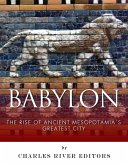However, the Carthaginians' foreign policy had one fatal flaw; they had a knack over the centuries of picking the worst enemies they could possibly enter into conflict with. The first serious clash of civilizations which Carthage was involved with was Greece, which rapidly became hostile when the Carthaginians began pushing to spread their influence towards the colonies known as Magna Graecia ("Great Greece"), which had been established in southern Italy and Sicily by several Greek poleis. Much later, Carthage eventually became embroiled in a long series of costly and ultimately unsuccessful wars in Sicily, but they were able to avoid an all-out confrontation with the Greeks mostly because Carthage's spread across the Mediterranean coincided with the Greeks' struggle for their very survival against Darius and Xerxes' Persian invasions. After those, the Peloponnesian War split Greece between Sparta and Athens as the two great cities battled each other for supremacy. Hostilities might have resumed later, but the Greeks were swallowed up by the burgeoning empire of Alexander the Great. The Macedonian himself, after his headlong push to the east had led him onto the plains of India itself, had planned to lead an army West along the coast of North Africa and take Carthage, but he died mysteriously before his dream could ever come to fruition. Thus, more by luck than by design, Carthage had survived a scrap with two of the greatest powers in the Mediterranean.
Unfortunately for the Carthaginians, it would not endure the next major confrontation. Certain foreign policy decisions led to continuing enmity between Carthage and the burgeoning power of Rome, and what followed was a series of wars which turned from a battle for Mediterranean hegemony into an all-out struggle for survival, with Hannibal crossing the Alps and threatening Rome itself during the Second Punic War and Roman legions smashing Carthage to rubble at the end of the Third Punic War. As legend has it, the Romans literally salted the ground upon which Carthage stood to ensure its destruction once and for all.
Despite having a major influence on the Mediterranean for nearly five centuries, little evidence of Carthage's past might survives. The city itself was reduced virtually to nothing by the Romans, who sought to erase all physical evidence of its existence, and though its ruins have been excavated they have not provided anywhere near the wealth of archaeological items or evidence as ancient locations like Rome, Athens, Syracuse, or even Troy. Today, Carthage is a largely unremarkable suburb of the city of Tunis.
Dieser Download kann aus rechtlichen Gründen nur mit Rechnungsadresse in A, B, BG, CY, CZ, D, DK, EW, E, FIN, F, GR, H, IRL, I, LT, L, LR, M, NL, PL, P, R, S, SLO, SK ausgeliefert werden.









